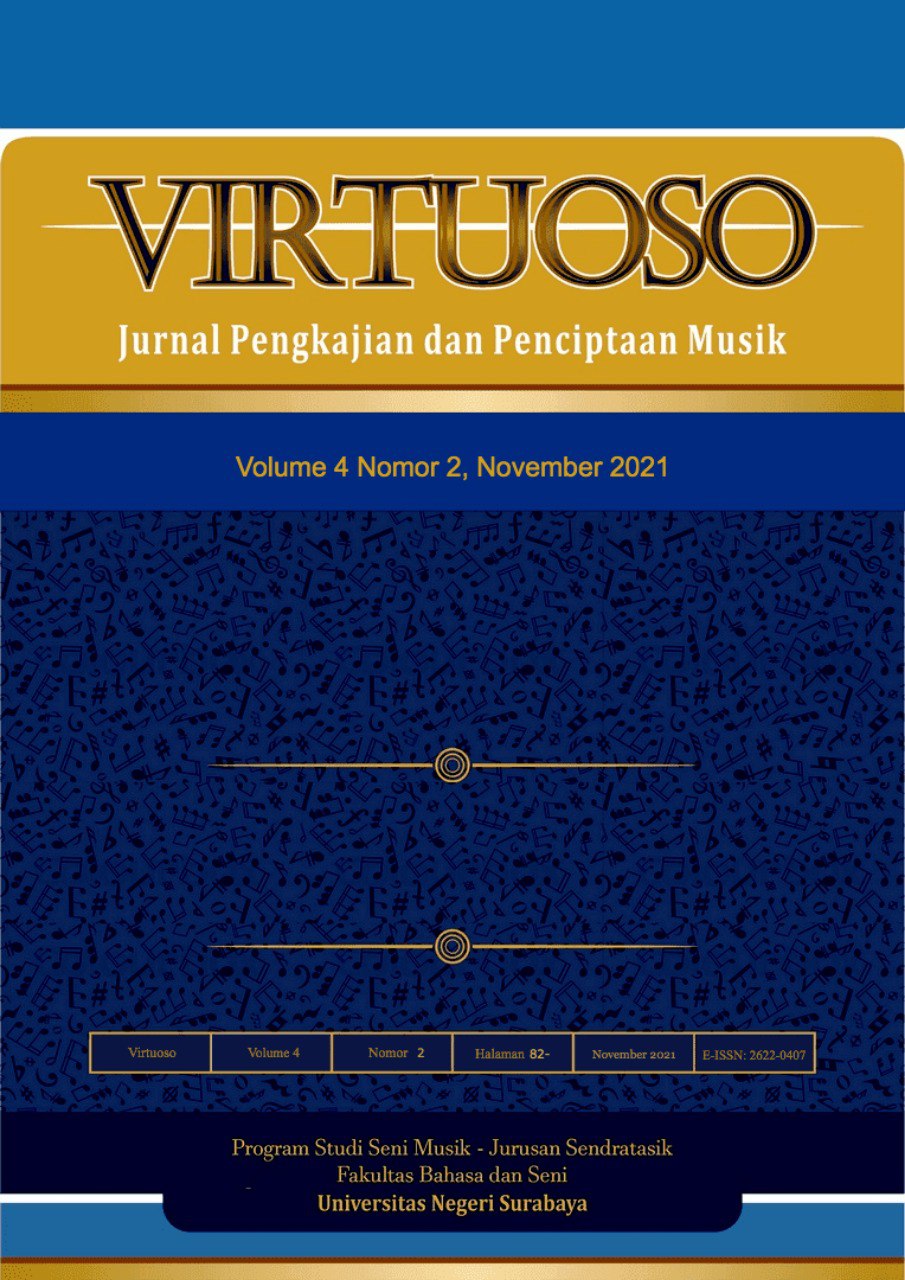Digitalisasi Pertunjukan Musik dengan Tema “Melodie del Mondo Fantastico”
Main Article Content
Abstract
Downloads
Article Details

This work is licensed under a Creative Commons Attribution-NonCommercial-ShareAlike 4.0 International License.
The copyright of the received article once accepted for publication shall be assigned to the journal as the publisher of the journal. The intended copyright includes the right to publish the article in various forms (including reprints). The journal maintains the publishing rights to the published articles.
References
Aji, R. (2016). Digitalisasi, Era Tantangan Media (Analisis Kritis Kesiapan Fakultas Dakwah dan Komunikasi Menyongsong Era Digital). Islamic Communication Journal, 1(1).
Irianto, A. M. (2017). Kesenian Tradisional Sebagai Sarana Strategi Kebudayaan di Tengah Determinasi Teknologi Komunikasi. Nusa: Jurnal Ilmu Bahasa dan Sastra, 12(1), 90-100.
Lehimler, E. (2019). The Evaluation of Musik Teacher Candidates' Awareness of Musik Applications and Software, Their Frequency of Use and Purpose of Use. Online Submission, 7(10), 99-107.
Miles, Matthew B. & A. Michael Huberman. (2009). Analisis Data Kualitatif. Jakarta: UIPress.
Murgianto, S. (1998). Mengenai Kajian Pertunjukan. dalam Pudentia MPSS (Ed.,) Metodologi Kajian Tradisi Lisan. Jakarta: Yayasan Pustaka Obor Indonesia.
Rahadian, D. (2017). Teknologi informasi dan komunikasi (tik) dan kompetensi teknologi pembelajaran untuk pengajaran yang berkualitas. Teknologi Pembelajaran, 2(1).
Ratnaningsih, K. (2020). Pengembangan Media Pembelajaran Seni Budaya Berbasis Digital Eksotisme Lukisan Pada Caping. INOPENDAS: Jurnal Ilmiah Kependidikan, 3(2).
Rustiyanti, S., Listiani, W., Sari, F. D., & Peradantha, I. B. G. S. (2020). Literasi Tubuh Virtual dalam Aplikasi Teknologi Augmented Reality Pasua PA. Jurnal Panggung, 30(3), 453-464.
Saputra, D. N. (2020). Culture Change: Case Of The Use Of Traditional Instruments Replaced With Modern Instruments In Keroncong Musik. Grenek Musik Journal, 9(2), 59-70.
Saputra, D. N. (2020). Peningkatan Kompetensi Mahasiswa Dalam Komposisi Musik Melalui Penggunaan Software Sibelius. Jurnal Kajian Seni, 6(2), 142-162.
Setiawan, A. (2021). Seni Tradisi, Terseok di Jagat Digital. repository.isi-ska.ac.id
Wiguna, W. (2017). Media Sosial dan Komunikasi Politik Era Digital. Jurnal Komunikasi Indonesia, 150-152.
Yan, B., & Zhou, Q. (2017). Musik learning based on computer software. International Journal of Emerging Technologies in Learning (iJET), 12(12), 142-150.

